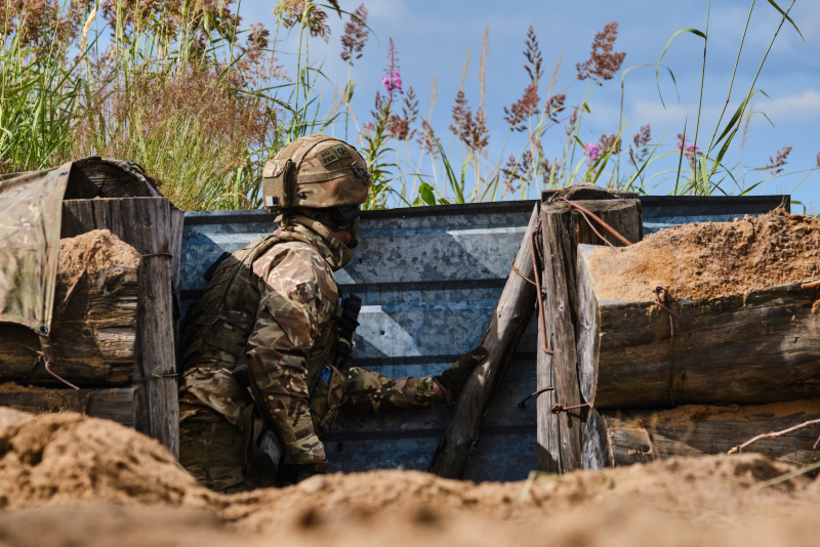What's wrong with the Armed Forces Bill?
Ellis Brooks outlines the key Quaker concerns about the Armed Forces Bill, including under-18 recruitment and Armed Forces Covenants.

The UK, out-of-step with the rest of NATO, the UN Security Council and Europe, recruits people at 16. The Armed Forces Bill is our best opportunity to raise the UK's minimum recruitment age to 18 in law, a longstanding Quaker concern.
Under-18 recruitment
As we wrote in our submission to the Bill Committee (PDF), veterans, the UN, Children's Commissioners, parliament's own Joint Committee on Human Rights, health professionals and human rights organisations have all called for a rethink.
All military recruitment is of concern to Quakers, but below the age of 18 the threat to children's rights and wellbeing is acute. We know that recruitment campaigns target young people from poor backgrounds.
Under-18 recruits often face bullying in training, greater danger of death and injury when deployed, and risk lifelong disadvantage and distress.
Contact your MP urgently asking them to speak in favour of raising the recruitment age when the bill is debated. Our friends at Children's Rights International Network have provided a handy guide.
Military covenants
While it ignores under-18 recruitment, the Bill represents a new wave of what Quakers have called a tide of militarisation (PDF) by introducing a duty under Armed Forces Covenants.
Military covenants have been around a while but was first officially expressed in 2000 when the Ministry of Defence wrote:
"This mutual obligation forms the Military Covenant between the nation, the Army and each individual soldier; an unbreakable common bond of identity, loyalty and responsibility…"
The UK imposes a duty on military recruits to 'fight and, if necessary, kill, according to their orders', but the UK will make it up to them because they will 'be sustained and rewarded with commensurate terms and conditions of service'.
Perhaps because there is no adequate compensation for sending someone to kill, the "unbreakable bond" looked increasingly brittle after the UK went to war in Afghanistan and Iraq, the latter based on misinformation. Scandals about poor equipment and neglect of soldiers' health hit the headlines. In this context, discussion of covenants shifted to be less about the state's obligations to the people in the military and more about the public's support for the armed forces.
The UK public has consistently showed overwhelming support for the people Britain sends to war, even as scepticism grew about the wars themselves. The government nevertheless decided that the problem was the public insufficiently valuing the contribution of people in uniform. The 2008 National Recognition of the Armed Forces report (PDF) laid out 40 recommendations for increasing the public profile of the military. These measures included a new Armed Forces Day and increased military engagement with politicians, the media and education. This informed the current Armed Forces Covenant formula, urging NHS Trusts, companies, charities, universities and local authorities to ensure 'those who serve or have served, and their families, are treated fairly.'
What's new in the bill?
In the government's own words, the 2021 bill will create "a legal duty to have due regard to the principles of the Armed Forces Covenant". Under the new Armed Forces Bill public health, education and housing services:
"must have due regard to—
(a) the unique obligations of, and sacrifices made by, the armed forces,
(b) the principle that it is desirable to remove disadvantages arising for service people from membership, or former membership, of the armed forces, and
(c) the principle that special provision for service people may be justified by the effects on such people of membership, or former membership, of the armed forces."
Equality and human rights
This is about the human cost of war. In recent armed interventions, civilians endured the greatest harm, but undoubtedly members of the UK armed forces suffer greatly too. Whether you view that as sacrifice or exploitation, seeing that of God in soldiers surely means tending their injuries; they should not be disadvantaged.
We are however concerned that a duty to have 'due regard' makes members of the armed forces a special class, deserving better treatment. That raises equality questions. All vulnerable people in society should receive adequate treatment according to their needs. Those needs look different and all of them should be taken into account when designing services. People involved in the armed forces are not the only victims of war in the UK, nor the only vulnerable people in society. Even with Britain's broken immigration system, 133,094 refugees live in the UK with tens of thousands of people seeking asylum from war and persecution.
A higher covenant?
For Quakers, covenants also raise a question rooted in the peace testimony: what will make war less likely? Covenants pass on the domestic cost of Britain's wars to education, health and housing services. This cost is borne not only by overstretched public services, but by military charities which spend almost £1 billion per year. If the Ministry of Defence had to pay for all the care for injured military personnel and veterans, perhaps it would be less willing or able to reach for the next war. That's why we asked the government to fully fund the cost for those in need.
The biblical overtones of the word 'covenant' are inescapable. Maybe the word is meant to imbue a sense of nobility. To me it has the opposite effect. The 'covenant of life and peace' that inspired early Quakers was premised on the Golden Rule, cherished across religions, that we should treat others as we would want to be treated. By contrast, Armed Forces Covenants normalise war, treating some lives as expendable.


